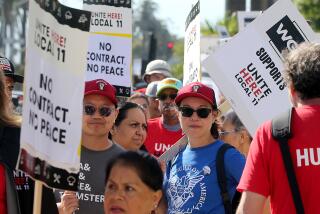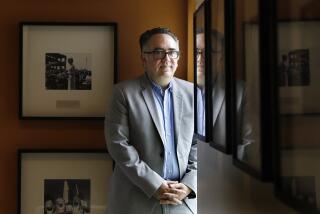ACLU’s Stand in Skokie
- Share via
Alan Pell Crawford’s “Republican” view of the American Civil Liberties Union is an object lesson in innuendo and ignorance of fact (Opinion, Oct. 2). In particular, Crawford’s analysis of the celebrated free-speech controversy in Skokie, Ill., is nothing but distortion.
Crawford writes that ACLU defended the “supposed” right of neo-Nazis to demonstrate in Skokie. “Supposed,” indeed: After 18 months of sustained scrutiny in every court in the Illinois and the federal judiciary, during which Skokie’s lawyers and others raised every imaginable argument to prevent the public expression of an unpopular idea, no supposition whatsoever remained. The “supposed” right Crawford describes was, and remains, absolute and inviolate.
Crawford slyly quotes John Roche, who criticized ACLU’s position in the Skokie litigation to ACLU founder Roger Baldwin, but he conveniently ignores Baldwin’s own position. Baldwin supported the work of Illinois ACLU in the Skokie controversy right down the line, and he said so often.
Finally, Crawford implies that ACLU’s participation in the Skokie controversy was part of a “new direction” for ACLU, an attempt to sustain and generate membership support. Even ignoring the fact that ACLU’s Skokie involvement was perfectly consistent with about 55 years of advocacy for free speech, Crawford’s analysis is absurd. In fact, ACLU lost support during and because of Skokie (about 30% in Illinois, 10% nationally)--hardly the stuff of a membership drive.
When Republican Sen. J. Danforth Quayle encounters hecklers on the stump, he is fond of saying that “they have the freedom of speech, but so do I.” That is the lesson of Skokie, and no amount of twisting by Crawford or Quayle’s running mate can change it.
DAVID HAMLIN
Los Angeles
(Hamlin was executive director of ACLU/Illinois from 1974-1978.)


